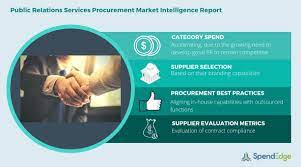Unleashing the Power of Digital: Empowering Businesses with a Leading Digital Agency
Digital Agency: Empowering Businesses in the Digital Age
In today’s fast-paced and interconnected world, having a strong online presence is essential for businesses to thrive. This is where digital agencies come into play. A digital agency is a strategic partner that helps businesses navigate the complex digital landscape and achieve their goals through effective online marketing strategies.
A digital agency is more than just a service provider; it is a team of experts with diverse skill sets who work together to deliver comprehensive solutions tailored to meet the unique needs of each client. These agencies understand that every business is different and requires a personalised approach to succeed in the digital realm.
One of the key advantages of partnering with a digital agency is their expertise in various aspects of online marketing. From search engine optimization (SEO) and pay-per-click (PPC) advertising to social media management and content marketing, these agencies have specialists who are well-versed in different disciplines. This allows businesses to tap into a wealth of knowledge and experience without having to hire an entire in-house team.
Digital agencies also stay up-to-date with the latest trends, tools, and technologies in the ever-evolving digital landscape. They are constantly learning and adapting their strategies to ensure clients stay ahead of their competition. Whether it’s understanding algorithm changes on search engines or leveraging emerging social media platforms, these agencies have their finger on the pulse of what works best in the digital world.
Furthermore, working with a digital agency provides businesses with access to advanced analytics and data-driven insights. These agencies utilize cutting-edge tools to track and measure key performance indicators (KPIs), allowing clients to make informed decisions based on real-time data. This data-driven approach enables businesses to optimize their online campaigns for maximum results and return on investment (ROI).
Another significant benefit of partnering with a digital agency is cost-effectiveness. Instead of investing in expensive software, training programs, and personnel, businesses can outsource their digital marketing needs to experts who already have the necessary resources. This not only saves money but also allows businesses to focus on their core competencies while leaving the digital marketing tasks to the professionals.
Moreover, digital agencies provide a fresh perspective and creative ideas. By working with businesses from different industries, they bring a wealth of knowledge and insights that can spark innovative solutions. They are adept at identifying unique selling points and crafting compelling narratives that resonate with target audiences, helping businesses stand out in a crowded online marketplace.
In conclusion, partnering with a digital agency is a strategic move for businesses looking to thrive in the digital age. These agencies offer expertise across various online marketing disciplines, stay ahead of trends, provide data-driven insights, offer cost-effective solutions, and bring fresh perspectives to the table. By leveraging the skills and knowledge of a digital agency, businesses can unlock their full potential in the vast world of digital marketing and achieve sustainable growth in today’s interconnected world.
9 Frequently Asked Questions About Digital Agencies: A Comprehensive Guide to Starting, Growing, and Choosing the Best Digital Agency for Your Needs
- How can I start a digital agency?
- How do digital agencies get clients?
- What is a digital agency do?
- Who is the world’s largest digital agency?
- What makes a good digital agency?
- What do digital agencies do?
- Which digital agency is best?
- What is a digital service agency?
- How do I start a digital creative agency?
How can I start a digital agency?
Starting a digital agency can be an exciting and rewarding venture. Here are some key steps to help you get started:
- Define your niche: Determine the specific area or industry you want to focus on within the digital agency space. Specializing in a particular niche can help you stand out and attract clients who require expertise in that area.
- Conduct market research: Understand the demand for digital agency services in your target market. Identify your potential competitors, their strengths, weaknesses, and the gaps you can fill. This research will help you define your unique value proposition and positioning.
- Develop a business plan: Outline your business goals, target market, services offered, pricing structure, marketing strategies, and financial projections in a comprehensive business plan. This document will serve as a roadmap for your agency’s growth and success.
- Build a skilled team: Assemble a team of talented professionals with expertise in various areas of digital marketing, such as SEO, social media management, content creation, web design, and analytics. Consider hiring full-time employees or collaborating with freelancers depending on your budget and workload.
- Establish partnerships: Forge strategic partnerships with complementary businesses or professionals who can enhance your service offerings or provide referrals. These partnerships can expand your reach and credibility within the industry.
- Set up operations: Register your business with the appropriate authorities and obtain any necessary licenses or permits required to operate legally. Set up an office space or create a virtual workspace equipped with the necessary tools and software for efficient project management.
- Create a compelling brand identity: Develop a strong brand identity that reflects your agency’s values, expertise, and unique selling points. Design an eye-catching logo, establish brand guidelines for consistent messaging across all channels, and build an engaging website that showcases your portfolio of work.
- Acquire clients: Implement targeted marketing strategies to attract clients to your agency. Utilize online channels such as social media platforms (LinkedIn, Twitter, Facebook), content marketing (blogging, guest posting), and search engine optimization (SEO) to generate leads. Attend industry events and network with potential clients to establish meaningful connections.
- Deliver exceptional service: Deliver high-quality work and exceptional customer service to exceed client expectations. Build long-term relationships by consistently delivering results and adapting to the evolving needs of your clients.
- Continuously learn and evolve: Stay up-to-date with the latest trends, technologies, and best practices in the digital marketing industry. Invest in ongoing training for yourself and your team to ensure you offer cutting-edge solutions that drive success for your clients.
Remember, starting a digital agency requires dedication, hard work, and a commitment to continuous improvement. By following these steps and staying focused on delivering value to your clients, you can build a successful digital agency that thrives in the competitive digital landscape.
How do digital agencies get clients?
Digital agencies employ various strategies to attract and acquire clients. Here are some common methods used by digital agencies to get clients:
- Online Presence: Digital agencies understand the importance of establishing a strong online presence. They invest in creating a professional website that showcases their expertise, services, and portfolio. A well-designed website with compelling content can attract potential clients who are actively searching for digital marketing services.
- Search Engine Optimization (SEO): Digital agencies optimize their websites and content using SEO techniques to rank higher in search engine results. By targeting relevant keywords and providing valuable information, they increase their visibility and attract organic traffic from potential clients.
- Content Marketing: Agencies produce high-quality content such as blog posts, articles, and guides that demonstrate their expertise in the industry. By sharing valuable insights and actionable tips, they position themselves as thought leaders and attract potential clients who are seeking expert advice.
- Social Media Marketing: Digital agencies leverage social media platforms to promote their services and engage with their target audience. They share informative content, case studies, success stories, and updates about industry trends to build credibility and generate interest from potential clients.
- Referrals: Satisfied clients can be a valuable source of new business for digital agencies. By providing exceptional service and delivering results, agencies encourage their existing clients to refer them to others who may benefit from their services.
- Networking: Attending industry events, conferences, seminars, or trade shows allows digital agencies to connect with potential clients face-to-face. Building relationships with industry professionals can lead to referrals or direct client acquisitions.
- Partnerships: Collaborating with complementary businesses or professionals can help digital agencies expand their reach and gain access to new client opportunities. For example, partnering with web design firms or PR agencies can lead to referrals or joint projects that benefit both parties.
- Online Advertising: Digital agencies may invest in online advertising campaigns on platforms like Google Ads or social media platforms. By targeting specific demographics and using compelling ad copy, they can generate leads and attract potential clients.
- Cold Outreach: Some digital agencies proactively reach out to potential clients through email marketing or direct messaging on social media platforms. They tailor their outreach messages to highlight their expertise and demonstrate how their services can address the client’s specific needs.
- Thought Leadership: Digital agencies establish themselves as thought leaders by publishing industry-specific insights, research papers, or whitepapers. This positions them as experts in their field and attracts potential clients who are looking for specialized knowledge and solutions.
It’s important to note that different agencies may prioritize different strategies based on their target market, industry focus, and resources available. A combination of these methods, tailored to the agency’s unique strengths, can help digital agencies attract new clients and grow their business.
What is a digital agency do?
A digital agency is a company that provides a range of services to help businesses establish and enhance their online presence. These agencies specialize in various aspects of digital marketing and use their expertise to develop effective strategies that align with the goals and objectives of their clients.
Here are some common services provided by digital agencies:
- Website Design and Development: Digital agencies create visually appealing, user-friendly websites that are optimized for search engines. They ensure that websites are responsive, mobile-friendly, and provide an excellent user experience.
- Search Engine Optimization (SEO): Digital agencies optimize websites to improve their visibility in search engine results. They conduct keyword research, optimize website content, and implement technical SEO strategies to increase organic traffic.
- Pay-Per-Click (PPC) Advertising: Digital agencies manage PPC campaigns on platforms like Google Ads or social media channels. They create targeted ads, set up bidding strategies, monitor performance, and optimize campaigns to drive qualified traffic to a client’s website.
- Social Media Management: Digital agencies develop social media strategies and manage clients’ social media accounts. They create engaging content, schedule posts, interact with followers, run paid advertising campaigns, and analyze performance metrics.
- Content Marketing: Digital agencies create compelling content such as blog posts, articles, videos, infographics, and more to attract and engage the target audience. They develop content calendars, conduct keyword research for SEO purposes, and distribute content through various channels.
- Email Marketing: Digital agencies design email campaigns to nurture leads or engage existing customers. They create visually appealing email templates, segment audiences for targeted messaging, track open rates and click-through rates (CTRs), and analyze campaign performance.
- Analytics and Reporting: Digital agencies track key performance indicators (KPIs) using analytics tools like Google Analytics or social media insights. They provide regular reports on website traffic, conversion rates, campaign performance metrics, ROI analysis, and recommendations for improvement.
- Digital Strategy and Consulting: Digital agencies work closely with clients to develop comprehensive digital strategies aligned with their business objectives. They provide guidance on the selection of appropriate digital channels, target audience identification, competitor analysis, and overall online marketing strategy.
- Branding and Design: Digital agencies assist with brand development and design, including logo design, brand identity creation, and visual assets for online platforms. They ensure consistency across all digital touchpoints to build a strong brand image.
- Online Reputation Management: Digital agencies help businesses monitor and manage their online reputation by monitoring reviews, responding to customer feedback, and implementing strategies to enhance brand perception.
Overall, a digital agency serves as a strategic partner for businesses seeking to establish or improve their online presence. They offer a wide range of services tailored to meet the unique needs of each client, helping them navigate the digital landscape effectively and achieve their marketing goals.
Who is the world’s largest digital agency?
The world’s largest digital agency is Accenture Interactive, a division of Accenture, a global professional services company.
What makes a good digital agency?
A good digital agency possesses several key qualities that set them apart from the competition. Here are some factors that contribute to a good digital agency:
- Expertise and Specialization: A good digital agency has a team of experts with specialized skills in various aspects of digital marketing, such as SEO, PPC, social media management, content marketing, web design, and more. They have a deep understanding of the latest industry trends and best practices.
- Proven Track Record: A good digital agency has a portfolio of successful projects and satisfied clients. They can demonstrate their ability to deliver results and achieve measurable goals for their clients. Case studies or client testimonials can provide insights into their past successes.
- Strategic Approach: A good digital agency takes a strategic approach to every project. They conduct thorough research and analysis to understand the client’s business objectives, target audience, and competition. Based on this information, they develop customized strategies that align with the client’s goals.
- Creativity and Innovation: A good digital agency brings fresh ideas to the table. They are creative in their approach to problem-solving and finding unique solutions for their clients’ challenges. They stay updated on emerging trends and technologies to offer innovative strategies that help businesses stand out.
- Data-Driven Decision Making: A good digital agency relies on data to drive decision-making processes. They use advanced analytics tools to track key performance indicators (KPIs) and measure the success of their campaigns accurately. This data-driven approach allows them to optimize strategies for better results.
- Clear Communication: Effective communication is crucial in any successful partnership. A good digital agency maintains open lines of communication with their clients throughout the project duration. They provide regular updates, reports, and transparent feedback on progress, ensuring alignment between both parties.
- Adaptability and Flexibility: The digital landscape is constantly evolving, so a good digital agency must be adaptable to change. They stay up-to-date with the latest trends, technologies, and algorithm updates. They are flexible in adjusting strategies and tactics to meet the ever-changing needs of their clients.
- Collaboration and Partnership: A good digital agency values collaboration and considers themselves as a partner rather than just a service provider. They work closely with their clients, understanding their business goals and challenges. They actively seek input from clients and incorporate their feedback into the project to ensure a collaborative approach.
- Transparency and Integrity: A good digital agency operates with transparency and integrity. They are honest about what can be achieved within a given timeframe and budget. They provide clear pricing structures, contracts, and terms of service to avoid any misunderstandings or surprises.
- Continuous Learning: The digital landscape is dynamic, so a good digital agency invests in continuous learning for its team members. They encourage professional development, attend industry conferences, participate in training programs, and stay updated with the latest industry certifications.
By considering these qualities when selecting a digital agency, businesses can find a partner that understands their unique needs, delivers exceptional results, and helps them achieve success in the ever-evolving digital world.
What do digital agencies do?
Digital agencies are strategic partners that provide a range of services to help businesses establish and enhance their online presence. Here are some key activities that digital agencies typically engage in:
- Digital Strategy: Digital agencies work closely with businesses to develop comprehensive digital strategies aligned with their goals and target audience. They analyze market trends, conduct competitor research, and identify opportunities to create a roadmap for success.
- Website Design and Development: Digital agencies create visually appealing and user-friendly websites that effectively represent a business’s brand identity. They ensure the website is responsive, optimized for search engines, and provides seamless user experiences across different devices.
- Search Engine Optimization (SEO): Digital agencies optimize websites to improve their visibility on search engine result pages (SERPs). They conduct keyword research, optimize website content, build quality backlinks, and implement technical SEO practices to increase organic traffic.
- Pay-Per-Click (PPC) Advertising: Digital agencies manage PPC campaigns on platforms like Google Ads or social media platforms. They create targeted ads, select relevant keywords, set budgets, monitor campaign performance, and optimize ad placements to drive qualified traffic and generate leads.
- Social Media Management: Digital agencies develop social media strategies tailored to a business’s objectives. They create engaging content, manage social media accounts, interact with followers, run paid advertising campaigns, and analyze social media metrics to maximize reach and engagement.
- Content Marketing: Digital agencies produce high-quality content such as blog posts, articles, videos, infographics, and more to attract and engage the target audience. They develop content calendars, conduct keyword research for SEO optimization purposes, distribute content across various channels, and measure its impact.
- Email Marketing: Digital agencies design effective email marketing campaigns to nurture leads and build customer relationships. They create compelling email templates, segment audiences based on demographics or behavior patterns, automate email sequences for personalized communication, track open rates and click-through rates (CTRs), and optimize campaigns for better results.
- Analytics and Reporting: Digital agencies utilize analytics tools to track and measure key performance indicators (KPIs) related to website traffic, user behavior, conversions, and more. They provide regular reports that highlight campaign performance, identify areas for improvement, and offer data-driven insights to guide future strategies.
- Online Reputation Management: Digital agencies monitor online mentions of a business or brand across various platforms and respond promptly to maintain a positive reputation. They address customer feedback, manage online reviews, handle crisis situations, and implement strategies to enhance brand perception.
- Conversion Rate Optimization (CRO): Digital agencies analyze user behavior on websites or landing pages to identify barriers preventing conversions. They conduct A/B testing, optimize website elements like call-to-action buttons or forms, and make data-driven changes to improve conversion rates.
These are just a few examples of the services digital agencies provide. Ultimately, their goal is to help businesses achieve their digital marketing objectives by leveraging their expertise in various online channels and strategies.
Which digital agency is best?
Determining the “best” digital agency depends on various factors, including your specific business needs, industry, budget, and goals. There isn’t a one-size-fits-all answer to this question. However, here are some key considerations to help you find the right digital agency for your requirements:
- Expertise and Services: Look for agencies that specialize in the specific areas of digital marketing that align with your goals. Consider whether you need assistance with website design and development, SEO, PPC advertising, social media management, content marketing, or a combination of these services.
- Industry Experience: Assess whether the agency has experience working with businesses in your industry. Familiarity with your sector can provide valuable insights and tailored strategies that cater to your target audience.
- Portfolio and Case Studies: Review the agency’s portfolio and case studies to gauge their previous work and success stories. This will give you an idea of their capabilities and the results they have achieved for their clients.
- Client Reviews and Testimonials: Read reviews or testimonials from past or current clients to get an understanding of their satisfaction level and experience working with the agency.
- Communication and Collaboration: Consider how effectively the agency communicates and collaborates with clients. Clear communication channels and a collaborative approach are crucial for a successful partnership.
- Transparency and Reporting: Ensure that the agency provides transparent reporting on key metrics, progress, and performance indicators. Regular updates on campaign performance will help you track ROI and make informed decisions.
- Budget Considerations: Evaluate whether the agency’s pricing aligns with your budget while considering the value they provide in return.
- Cultural Fit: Assess whether there is a good cultural fit between your business values and those of the agency you are considering partnering with. A strong alignment can lead to better collaboration and understanding.
Ultimately, it’s essential to research multiple agencies, have conversations with them, ask questions about their approach, discuss your goals, and evaluate their suitability for your specific needs. By considering these factors, you can find the digital agency that best meets your requirements and sets your business up for digital success.
What is a digital service agency?
A digital service agency is a company that provides a range of digital services to help businesses establish and enhance their online presence. These agencies specialize in various aspects of digital marketing, technology, and design, offering comprehensive solutions to meet the unique needs of their clients.
Digital service agencies typically offer a wide range of services, including but not limited to:
- Website Development: They create and design websites that are visually appealing, user-friendly, and optimized for search engines. These websites serve as the foundation for a business’s online presence.
- Search Engine Optimization (SEO): They optimize websites to improve their visibility on search engine results pages. This involves keyword research, on-page optimization, technical SEO enhancements, and link building strategies.
- Pay-per-Click (PPC) Advertising: They manage paid advertising campaigns on platforms like Google Ads or social media platforms to drive targeted traffic to a business’s website. This involves keyword research, ad creation, bid management, and ongoing campaign optimization.
- Social Media Management: They develop social media strategies and manage social media accounts on behalf of businesses. This includes content creation, community management, engagement strategies, and performance tracking.
- Content Marketing: They create engaging and relevant content such as blog posts, articles, videos, infographics, and more to attract and engage the target audience. Content marketing aims to establish thought leadership and build brand credibility.
- Email Marketing: They develop email marketing campaigns to nurture leads and maintain regular communication with customers. This includes designing templates, creating engaging content, segmenting audiences, and tracking campaign performance.
- Branding and Design: They assist businesses in creating or refining their brand identity by developing logos, visual assets (such as colour palettes), brand guidelines, and other design elements for consistent branding across all digital channels.
- Analytics and Reporting: They track key performance indicators (KPIs) using analytics tools to measure the effectiveness of digital campaigns. This data-driven approach helps businesses make informed decisions and optimize their strategies for better results.
Digital service agencies often work closely with their clients, understanding their goals, target audience, and industry to develop tailored strategies and solutions. They stay up-to-date with the latest trends, tools, and technologies in the digital landscape to provide innovative and effective services.
Overall, a digital service agency acts as a strategic partner for businesses, helping them navigate the complexities of the digital world and achieve their online marketing objectives.
How do I start a digital creative agency?
Starting a digital creative agency can be an exciting and rewarding venture. Here are some steps to help you get started:
- Define your niche: Determine the specific area of digital creative services you want to focus on. It could be web design, graphic design, social media management, content creation, or a combination of these and more. Defining your niche will help you target the right clients and differentiate yourself in a competitive market.
- Conduct market research: Understand your target audience and competition. Identify the needs and pain points of potential clients in your chosen niche. Research existing digital creative agencies to gain insights into their services, pricing, and client base. This research will help you refine your business strategy and positioning.
- Develop a business plan: Create a comprehensive business plan that outlines your goals, target market, services offered, pricing structure, marketing strategies, financial projections, and operational details. A well-thought-out business plan will serve as a roadmap for your agency’s success.
- Set up your legal structure: Decide on the legal structure for your agency (sole proprietorship, partnership, or limited liability company) and register it with the appropriate authorities in your country or region. Consult with legal professionals to ensure compliance with local regulations.
- Build a talented team: Assemble a team of skilled professionals who have expertise in different areas of digital creativity such as design, development, content creation, or marketing. Look for individuals who share your passion for creativity and have a track record of delivering high-quality work.
- Establish partnerships: Collaborate with complementary service providers such as web developers or copywriters to expand the range of services you can offer clients. Building partnerships can enhance your capabilities and provide additional value to clients.
- Create an online presence: Develop a professional website that showcases your agency’s portfolio and highlights the range of services you offer. Utilize social media platforms to engage with potential clients and showcase your creative work. A strong online presence will help establish credibility and attract clients.
- Network and market your agency: Attend industry events, join professional associations, and participate in online communities to network with potential clients and industry peers. Utilize digital marketing strategies such as search engine optimization (SEO), content marketing, social media advertising, and email marketing to raise awareness about your agency.
- Deliver exceptional work: Focus on delivering high-quality creative solutions that exceed client expectations. Happy clients can become valuable advocates and a source of referrals for your agency.
- Continuously learn and evolve: Stay updated with the latest trends, tools, and technologies in the digital creative industry. Invest in professional development for yourself and your team to ensure you remain at the forefront of innovation.
Starting a digital creative agency requires careful planning, hard work, and dedication. By following these steps and staying committed to delivering outstanding creative solutions, you can build a successful agency that helps businesses thrive in the digital world.









